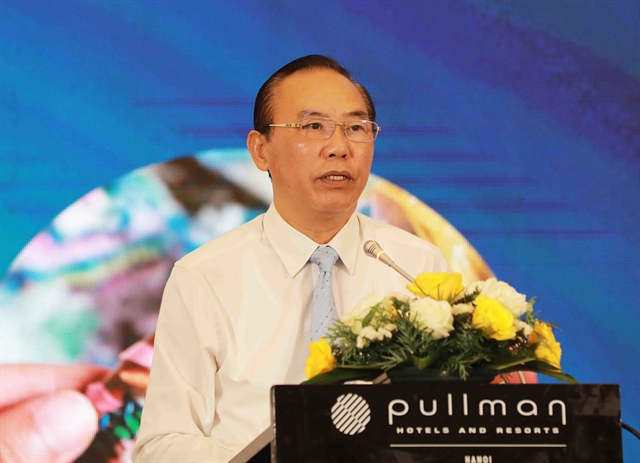
Việt Nam needs drastic solutions to plastic pollution caused by agricultural production as it has been putting pressures on the environment, Deputy Minister of Agriculture and Rural Development Phùng Đức Tiến said on Wednesday morning.
It is essential to work out practical measures to address the problem, he said at a workshop co-held by the ministry and the United Nations Development Programme (UNDP) in Hà Nội.
Nguyễn Giang Thu, deputy director of the ministry’s Science, Technology and Environment Department, pointed out some solutions at the event.
She said both human and financial resources should be arranged and given priority to carry out activities to reduce, collect, classify and reuse plastic waste in the agricultural industry.
The Government should develop technical guidelines on the reduction, collection, classification and reuse of plastic waste in the agricultural sector, she said.
Disseminating information to raise awareness of plastic waste for agricultural officers, organisations and individuals engaged in agricultural activities and residents living in coastal areas is also one of the solutions, she said.
The country is advised to conduct more research on technology, alternative materials for plastic materials in agricultural production, prioritising environmentally friendly and low-cost technological solutions so that it can encourage people to use the alternative materials, she said.
It is also necessary to pilot models to reduce plastic waste, and expand international cooperation in the mitigation, collection, classification and reuse of plastic waste in the agricultural industry, she said.
Mobilising the private sector to participate in activities to reduce, collect, classify and reuse plastic waste in the agricultural industry is important, she said.
Ramla Khalidi, UNDP resident representative in Việt Nam, recommended that Việt Nam build data on plastic pollution and plastic waste as well as a feasible monitoring system from national to provincial level to evaluate the process of reducing plastic waste in the agricultural sector.
It has to promote efficient models to collect and recycle plastic waste, use alternative materials to replace single-use plastics in the field, and train farmers and agricultural stakeholders on the environmental impact of plastics, she said.
Statistics from the ministry showed that the agricultural sector’s export turnover reached over US$53.5 billion last year. It has contributed to stabilising lives and ensuring social security for the people and developing the country.
However, waste generated from agricultural production, such as wastewater, agricultural by-products and plastic waste, has caused significant environmental pollution.
Under the 2021 National Environmental Report, the total amount of solid waste generated from farming activities (nylon, fertiliser packaging and plant protection drugs) reaches approximately 661.5 million tonnes each year.
Solid waste generated from raising buffaloes, cows, pigs and poultry reaches about 67.93 million tonnes each year.
Aquaculture activities generate about 880,000 tonnes of sludge and 273,000 tonnes of animal feed packaging each year.
(VNS)





